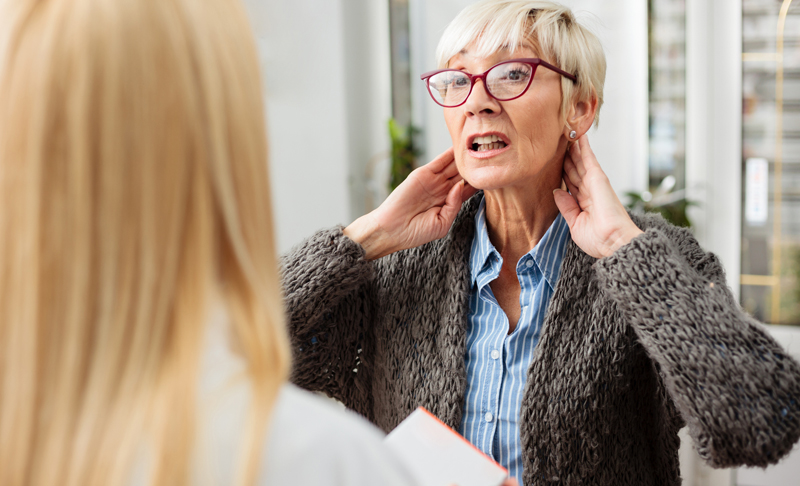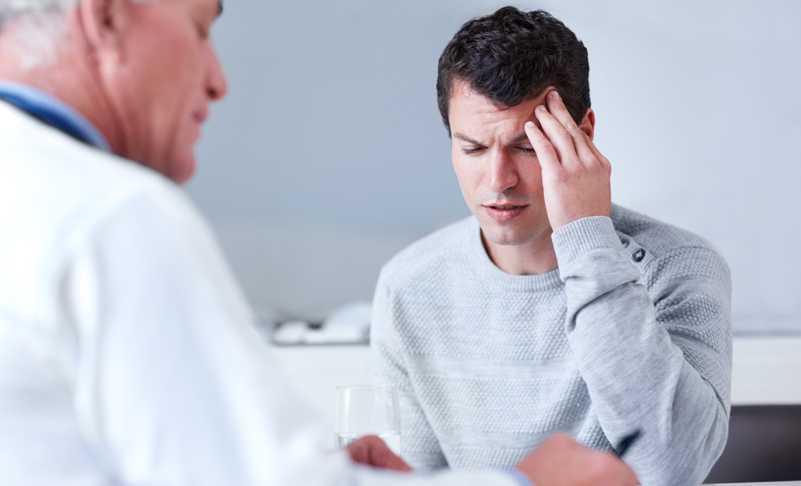What are Migraines?
A migraine is usually a severe headache felt as a throbbing pain at the front or one side of the head. Some people also have other symptoms, such as nausea and sensitivity to light. Migraine is a common health condition, affecting about 15% of adults in the UK.
There are several types of migraine, including migraine with aura which is when there is a warning sign before the migraine begins. Auras may include visual problems such as flashing lights and stiffness in the neck or shoulders. There are also migraines without aura and migraines without headache, also known as silent migraines, when an aura is experienced but a headache does not develop.
At Highgate Dental we are experienced in finding possible solutions to our patients’ migraines.


Diagnosis of Migraines
We may ask if your headaches are:
- On one side of the head
- A pulsating pain
- Moderate or severe or preventing you carrying out daily activities
- Made worse by physical activity or moving about
- Accompanied by nausea and/or vomiting
- Accompanied by sensitivity to light (photophobia) and/or noise (phonophobia)
To help with diagnosis, it can be useful to keep a diary of your attacks. Note down details, including the date, time and what you were doing when the migraine began. It is also helpful to make a note of the food you ate that day as this can help us identify potential triggers.
TMJ / Jaw Clenching and Migraines
Temporomandibular Joint disorder (TMJ) occurs as a result of problems with the jaw, jaw joint and surrounding facial muscles. Migraines are often associated with TMJ or bruxism (the clenching and grinding of the teeth) and muscular tension. Here at The Highgate Dental Practice we have developed a highly successful treatment protocol to deal with TMJ/muscle tension related migraines.
How do I know if I have TMJ?
- Do you clench/grind your teeth?
- Do you wake up with a headache or tightness in your jaw or along the side of the face?
- Do you suffer from a tight neck or do you suffer from neck, back shoulder tension?
- Do you work in front of a computer or at a desk?
- Does your jaw click?
If we conclude that we can help you we would encourage you to develop relaxation techniques and becomes aware of muscle tension.
Treatment for Migraines
There is currently no cure for migraines. However, a number of treatments can be used to ease the symptoms. It may take time to work out which is the best for you and you may need to try different types or combinations of treatment before you find which is most effective.

Medication
Many people who have migraines find that over-the-counter painkillers, such as paracetamol and aspirin, can help to reduce their symptoms. Soluble painkillers are a good option because they are absorbed quickly by your body. Painkillers tend to be more effective if taken at the first signs of a migraine. This gives them time to absorb into your bloodstream and ease your symptoms. Some people only take painkillers when their headache becomes very bad which is not advisable because it is often too late for the painkiller to work.

TMJ Night Guard
If we diagnose you with TMJ we can fit you with a Hard Upper Michigan Night Guard – this appliance reduces muscle tension. Usually very successful and many patients do not need further treatment.

Nutrition
If you find that you cannot manage your migraines using over-the-counter medicines, then your migraines might be related to eating certain foods. We can refer you to our Nutritional Therapist for and assessment and dietary advice: Vicki Lee (www.NutritionalTherapyWorks.com)

Postural Exercise
Alternatively your migraines could be linked to poor posture and weakened core which could contribute to muscle tension induced migraines. In this case we would refer you to our postural Exercise Therapist Craig Lambert (www.LambertPerformance.com) for further diagnosis and treatment.

Botox and muscle relaxation for migraines
Dr Hugo Hagen at Highgate Dental has developed a very successful migraine treatment protocol using Botox (Allergan). He treats specific muscle groups to reduce muscle tension in the head and neck with an excellent success rate. Muscle groups targeted are Masseter (cheek), Frontalis (forehead) and Occipitalis muscle groups (back of the head). Dr Hagan works closely with the Allergan Aesthetic Medical Division www.allergan.co.uk in the treatment of muscle tension with Botox. See attached research article related to this subject: Botox treatment for Migraines and TMJ issues
Migraine or TMJ Jaw Consultation
Book your consultation at Highgate Dental Practice today and find out more.
| Migraine / TMJ Consultation | £140 |


